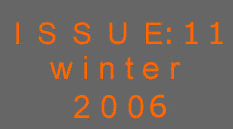

NUCNET NEWS
THE WORLD’S NUCLEAR NEWS AGENCY
4 January: EU energy commissioner Andris Piebalgs
said today that proposals for a common European energy policy
would be presented to EU member states before the end of 2006
Mr Piebalgs’ announcement came as the EU
welcomed an agreement for the resumption of gas supplies from
Russia to Ukraine following a dispute which led to the suspension
of Russian gas deliveries to Ukraine on 1 January 2006 and reductions
in deliveries to some EU member states.
“It is clear that Europe needs a clearer
and more collective and cohesive policy on security of energy
supply,” Mr Piebalgs said. “To date, the issue of
security of energy supply is only really considered at national
member state level, but in reality we need a much greater European-wide
approach on this issue.”
Mr Piebalgs said the issue had been raised at
an informal summit of EU leaders in the UK in October 2005 and
that he would “issue a first communication on a new European
energy policy in spring, drawing final conclusions and proposals
before the end of the year”.
In Germany, economics minister Michael Glos said on 2 January
2006 that the gas supply dispute showed how important it was to
have a “wide and well-balanced energy mix”. He said
the issue would be open for further discussion at a German national
energy summit to be held early in 2006, as announced towards the
end of 2005 by Chancellor Angela Merkel.
Mrs Merkel’s new coalition government agreed on a pact in
November 2005 that acknowledged “differences” between
the coalition partners on the use of nuclear energy for power
production. The government said for this reason, an existing law
requiring a gradual phase-out of nuclear power plants in Germany
passed by the former government – and a contract with energy
supply enterprises – could not be changed.
However, the coalition pact acknowledged that a “sound
overall energy policy concept must be based on a balanced energy
mix”.
In an interview published in December 2005 in
Germany’s Frankfurter Allgemeine Sonntagszeitung newspaper,
Mr Glos was quoted as saying of nuclear power: “We should
not turn our backs on a technology of the future… But I
hope that the last word has not been spoken.”
Meanwhile, a member of the executive board of
the Federation of German Industries (BDI) called for an “ideology
free” debate about extending the lifetimes of Germany’s
nuclear power plants. Carsten Kreklau, responding to the Russia-Ukraine
dispute, said Germany needed the broadest possible energy mix,
including nuclear power, which he said continued to be “the
most important” provider of baseload energy supply.
Thirteen out of the 25 EU member states produce
nuclear power and nuclear energy is the EU’s largest single
energy source for electricity generation – currently about
32%.
Source: NucNet
Editor:John Shepherd
|






